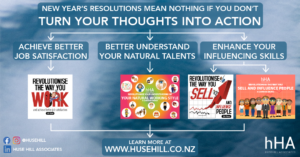Post Statistics
This post has 527 words.
This post has 3588 characters.
This post will take about 2 minute(s) to read.

When people are asking what their purpose in life is, they usually want to know a reason or direction to their lives. A good starting point is to take a minute to think about what you enjoy doing. Whether that be work or play. What is it that gets you out of bed in the morning? Why do we enjoy some things and not others? What is your purpose in life?
Well, the answer is in your genes. What you have inherited from your mother and father defines what colour eyes you have, your height, your health factors and the colour of your hair. Genes also define how you think.
How we think determines how we see the world and how we behave. We have learned behaviours, which we have developed from our upbringing, how people we grew up with behaved around us and formative experiences we had when we first moved into the adult world. Then we have instinctive behaviours, which come from our genes.
You can discover your Instinctive behaviours through the InstinctiveDrive.com website. By doing the Instinctive Drive questionnaire, they will provide you with your Instinctive Drive profile. With this profile, you can get an understanding of your instinctive thinking/behaviours. Once you have this knowledge, then you can differentiate between your learned behaviours and instinctive behaviours which will allow you to measure one of them, and then you have the ability to manage these behaviours.
The classic example of learned behaviour is when you or your partner catch yourself behaving like your mum or dad.
There’s one other bit of thinking that can interfere with establishing who we are and that is social expectation where you allow (if you choose) Society to dictate to you how you should live your life. An example of this is where someone is very good at sales or a trade but the social expectation is that you should be a manager. Managing people has nothing to do with being good at sales or a trade and when you’re filling a society’s expectation, you’re interfering with your job satisfaction. Job satisfaction comes from being good at what you do naturally, or instinctively.
To understand what your purpose in life is, you need to look in the mirror at who you are. What fulfils you and be accountable to yourself. To not let someone else’s expectations drive you.
The last part of your purpose in life is looking at employment. What is it that gets you out of bed of bed in the morning? Start by looking at what industry you want to work in whether it be banking, finance, chemicals, technology, medicine or any other. Then go back to your Instinctive Drive profile and line that up with the employment role that matches your natural talents.
In my book Revolutionise the Way You Work, I have a chapter on Natural Working Styles/instinctive behaviour and how it connects to employment. The book will enable you to be more successful by better managing your time, tasks, projects and your communication with the world around you.




